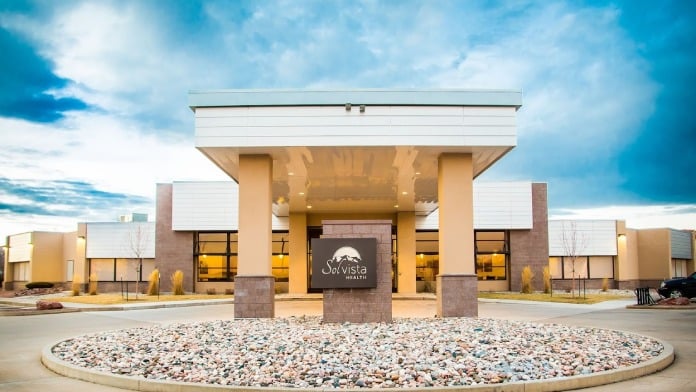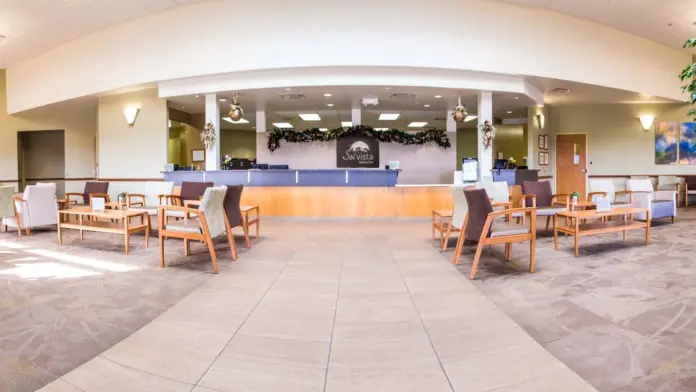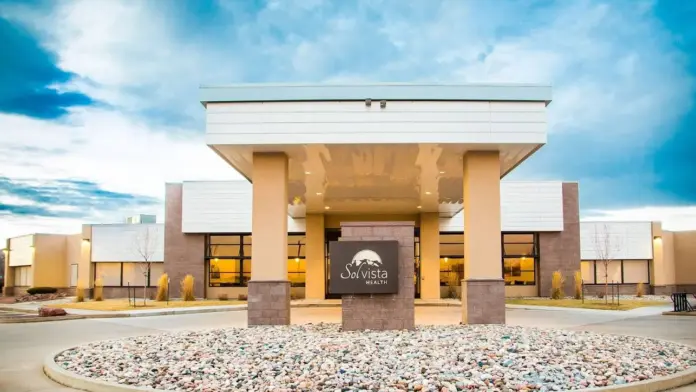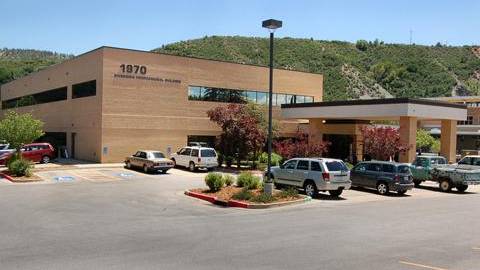I have been with Solvista for over ten years. I unfortunately had a bad experience this time. I was riding in the vehicle of my case management of Solvista and Stephanie O’Donnell rammed into a vehicle behind us in drive thru. She has terrez and guessing that’s why. She ...
About Solvista Health
Solvista Health provides behavioral health care services in multiple locations throughout Colorado. Their Canon City East Campus is located in Canon City, Colorado. They offer primary care, counseling services and addiction recovery services for clients of all ages. Their treatments are offered on an outpatient basis so you can get the care you need while still living at home. They accept self pay, private insurance, Medicaid and Medicare.
You can attend your counseling sessions on your own or with your family members. If you’re struggling with an alcohol or drug addiction, bringing your loved ones into your recovery process can widen your circle of support.
Something I noticed about their addiction recovery program is that it’s truly comprehensive in nature. In addition to your recovery focused counseling sessions, you can also speak to a psychiatrist if you need help with a co-occurring mental illness. There are also peer advocates available if you want to talk to someone who’s walked in your shoes before and come out on the other side.
If you need help beyond what they can provide in house, they’ll connect you with other departments within the Solvista Health network. For example, they offer medication assisted treatment through their primary medical clinic and can help you schedule an appointment there.
Latest Reviews
Rehab Score
Gallery



Location
Accepted Insurance
Other Forms of Payment
Private insurance refers to any kind of healthcare coverage that isn't from the state or federal government. This includes individual and family plans offered by an employer or purchased from the Insurance Marketplace. Every plan will have different requirements and out of pocket costs so be sure to get the full details before you start treatment.
Self-pay involves paying for treatment out of your own pocket. You can use savings or credit, get a personal loan, or receive help from family and friends to fund your treatment. If you don't have insurance or your insurance plan doesn't cover a specific program, self-pay can help ensure you still get the care you need.
Medicare is a federal program that provides health insurance for those 65 and older. It also serves people under 65 with chronic and disabling health challenges. To use Medicare for addiction treatment you need to find a program that accepts Medicare and is in network with your plan. Out of pocket costs and preauthorization requirements vary, so always check with your provider.
Medicaid is a state based program that helps lower-income individuals and families pay for healthcare. Medicaid covers addiction treatment so those enrolled can use their coverage to pay for rehab. When a program accepts Medicaid the client often pays very little or nothing out of their own pocket.
Military members, veterans, and eligible dependents have access to specific insurance programs that help them get the care they need. TRICARE and VA insurance can help you access low cost or no cost addiction and mental health treatment. Programs that accept military insurance often have targeted treatment focused on the unique challenges military members, veterans, and their families face.
Addiction Treatments
Levels of Care
Treatments
Many of those suffering from addiction also suffer from mental or emotional illnesses like schizophrenia, bipolar disorder, depression, or anxiety disorders. Rehab and other substance abuse facilities treating those with a dual diagnosis or co-occurring disorder administer psychiatric treatment to address the person's mental health issue in addition to drug and alcohol rehabilitation.
Mental health rehabs focus on helping individuals recover from mental illnesses like bipolar disorder, clinical depression, anxiety disorders, schizophrenia, and more. Mental health professionals at these facilities are trained to understand and treat mental health issues, both in individual and group settings.
Programs


Clinical Services
Group therapy is any therapeutic work that happens in a group (not one-on-one). There are a number of different group therapy modalities, including support groups, experiential therapy, psycho-education, and more. Group therapy involves treatment as well as processing interaction between group members.
In individual therapy, a patient meets one-on-one with a trained psychologist or counselor. Therapy is a pivotal part of effective substance abuse treatment, as it often covers root causes of addiction, including challenges faced by the patient in their social, family, and work/school life.
Research clearly demonstrates that recovery is far more successful and sustainable when loved ones like family members participate in rehab and substance abuse treatment. Genetic factors may be at play when it comes to drug and alcohol addiction, as well as mental health issues. Family dynamics often play a critical role in addiction triggers, and if properly educated, family members can be a strong source of support when it comes to rehabilitation.
Contact Information
3225 Independence Road
Canon City, CO 81212







